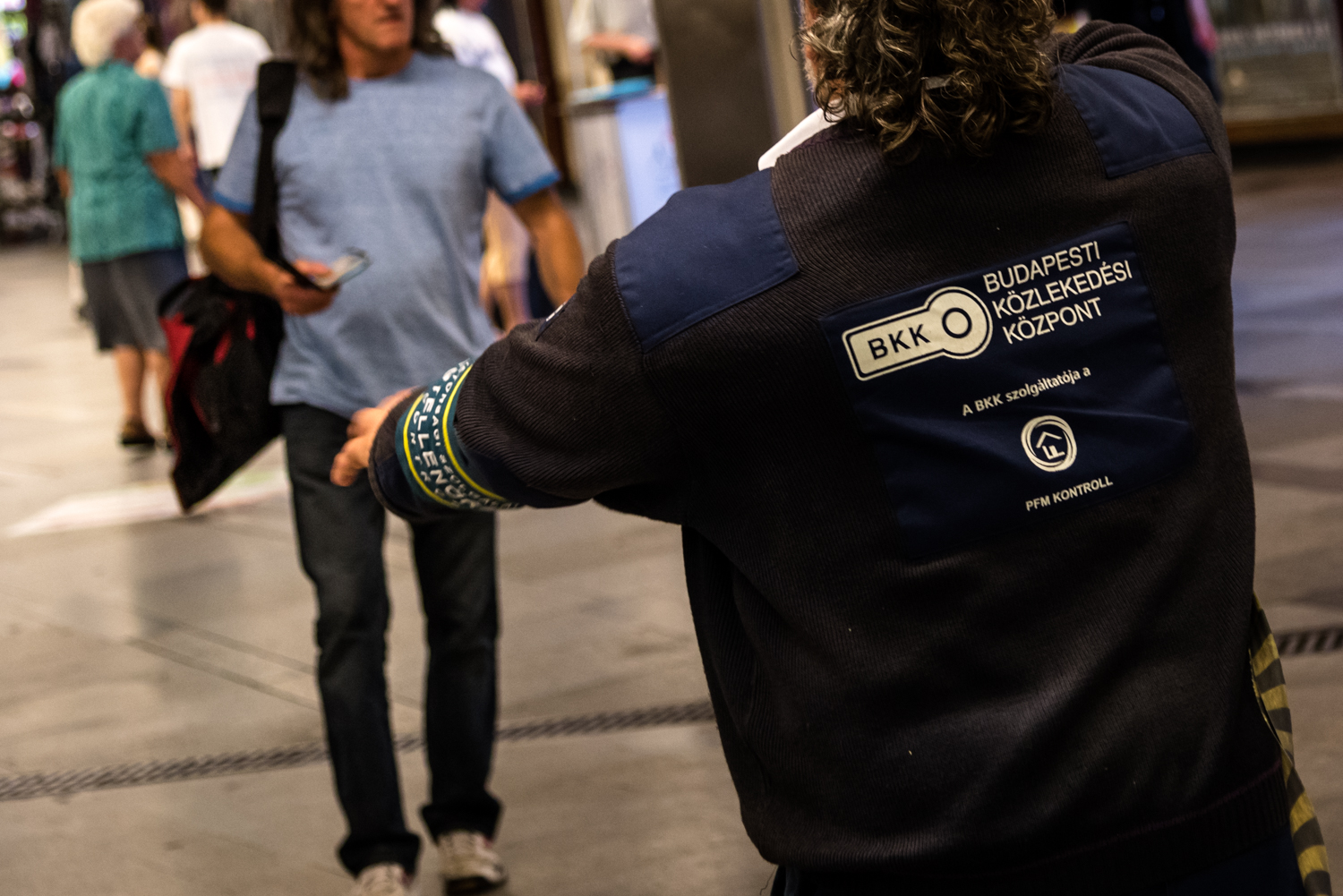First of all, let’s make something absolutely clear – we here at We Love Budapest believe that all passengers on the city’s public-transportation system (called the “BKK”) should pay for every single journey; of course, we also believe that no government officials should be corrupt, and that all wars should be brought to an immediate end so that humanity can proceed into an eternal state of blissful world peace. Regardless, the easiest and most righteous way to avoid being caught riding Budapest’s public-transport conveyances without a ticket or pass is to pay for tickets and passes – for basic information on how to do that, check out this article:Now that this caveat is dispensed with, let’s face facts: many riders take advantage of the BKK’s outdated enforcement protocols to save money by playing “catch me if you can” during their daily commute – and this game is a commonplace practice among Budapest residents that dates back decades, a phenomenon which only galvanizes teams of ticket inspectors to patrol the BKK network ever-more aggressively. This situation provided ample material for the cult-classic 2003 film by Hungarian director Nimród Antal, Kontroll, which explores the underground world of ticket inspectors (and the riders that dodge them) with disturbingly dark humor.
However, while it can be an exhilarating experience to act like a low-budget secret agent evading thuggish officials while traversing the city, even passengers who want to pay for their rides can sometimes accidentally run afoul of the rules simply because of their often-complex nature. This especially applies to unfortunate tourists who are not familiar with Budapest’s public-transportation payment procedures; inspectors sometimes seem to actively target out-of-towners, and even if they have bought a ticket but didn’t validate it properly, these hapless city visitors are often punished harshly for their confusion. Thus, below we offer some basic tips to hopefully help avoid this type of situation, so that you can ride with a free-and-easy spirit… if not actually for free.
Tickets and passesFirst of all, it’s essential to understand exactly what a standard single ticket (350 HUF) provides: one uninterrupted one-way ride for a maximum distance from one end of the line to the other on any bus, tram, trolleybus, or metro (including transfers between different metro lines). Before entering the metro system, or immediately after boarding any bus, tram, or trolleybus, passengers are supposed to validate their tickets immediately, either by punching it with holes by placing it into an old-fashioned red device with a black slot that the rider then pulls back towards them to punch the ticket manually, or into an orange computerized punching machine that automatically imprints the time and date onto the ticket.
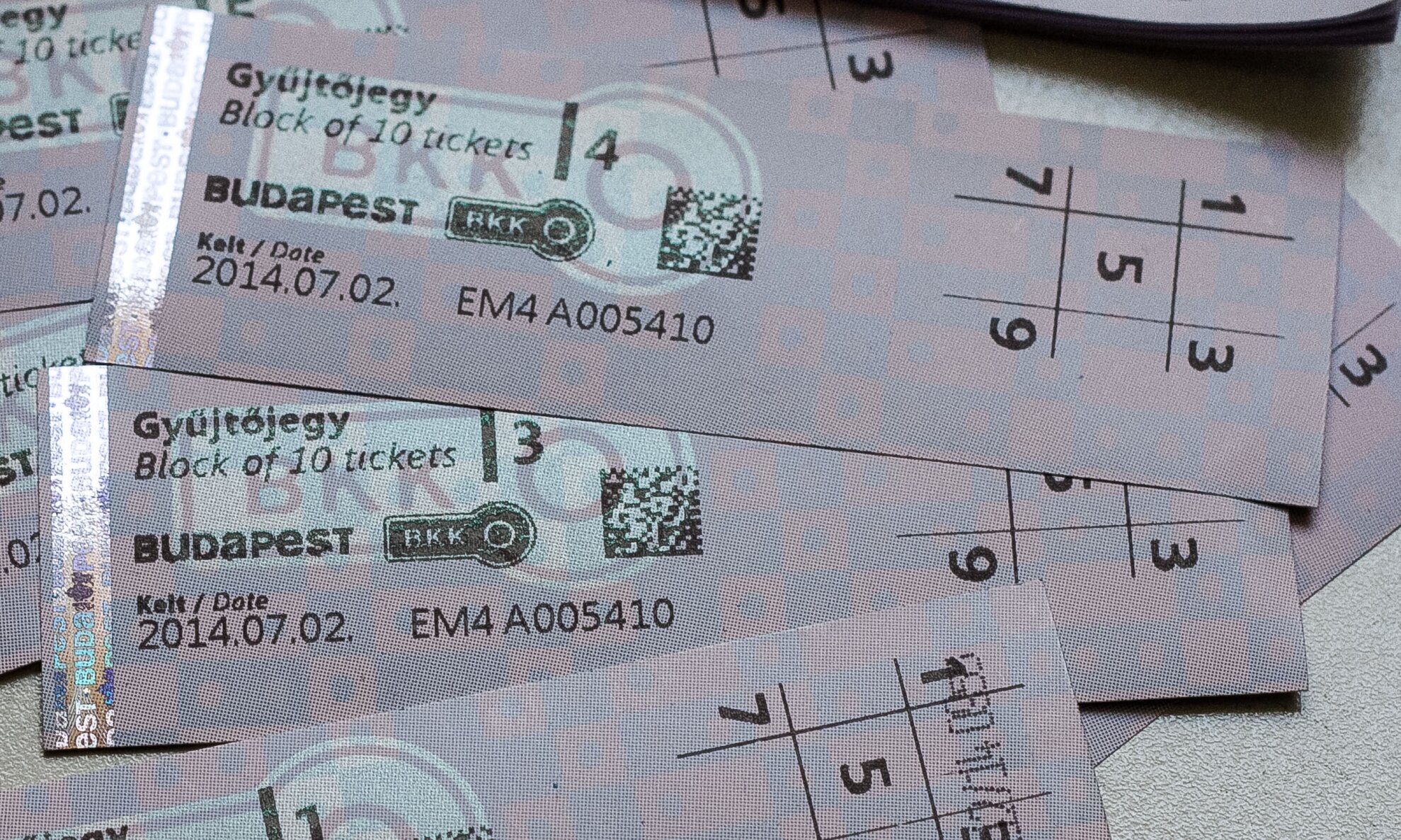
People with passes do not need to validate their pass, but the dates of validity are printed on the pass, and of course these passes can only be used during those dates. So, with either a properly punched ticket or a valid pass, BKK riders can proceed to board their vehicle and enjoy the journey without fear… but here is how enforcement procedures generally operate for all main types of public-transport vehicles.
Buses and trolleybusesOn some bus and trolleybus lines, passengers are only allowed to board through the front entrance and must show their valid pass to the driver, or punch a ticket in front of the driver. However, on many of the bus and trolleybus lines, passengers can board through any door, and if they are riding with a ticket, they are supposed to punch it immediately based on the honor system. Most of the time, those unscrupulous riders who choose not to punch their ticket end up getting away with a free ride… but they must then constantly scan every set of passengers who climbs aboard at each stop, because sometimes a small team of two to six undercover ticket inspectors will board the bus, wait until the doors close so that all passengers are trapped inside, and then put on BKK-emblazoned armbands and pull out their official ID card before going to every passenger and asking to see their pass or punched ticket.
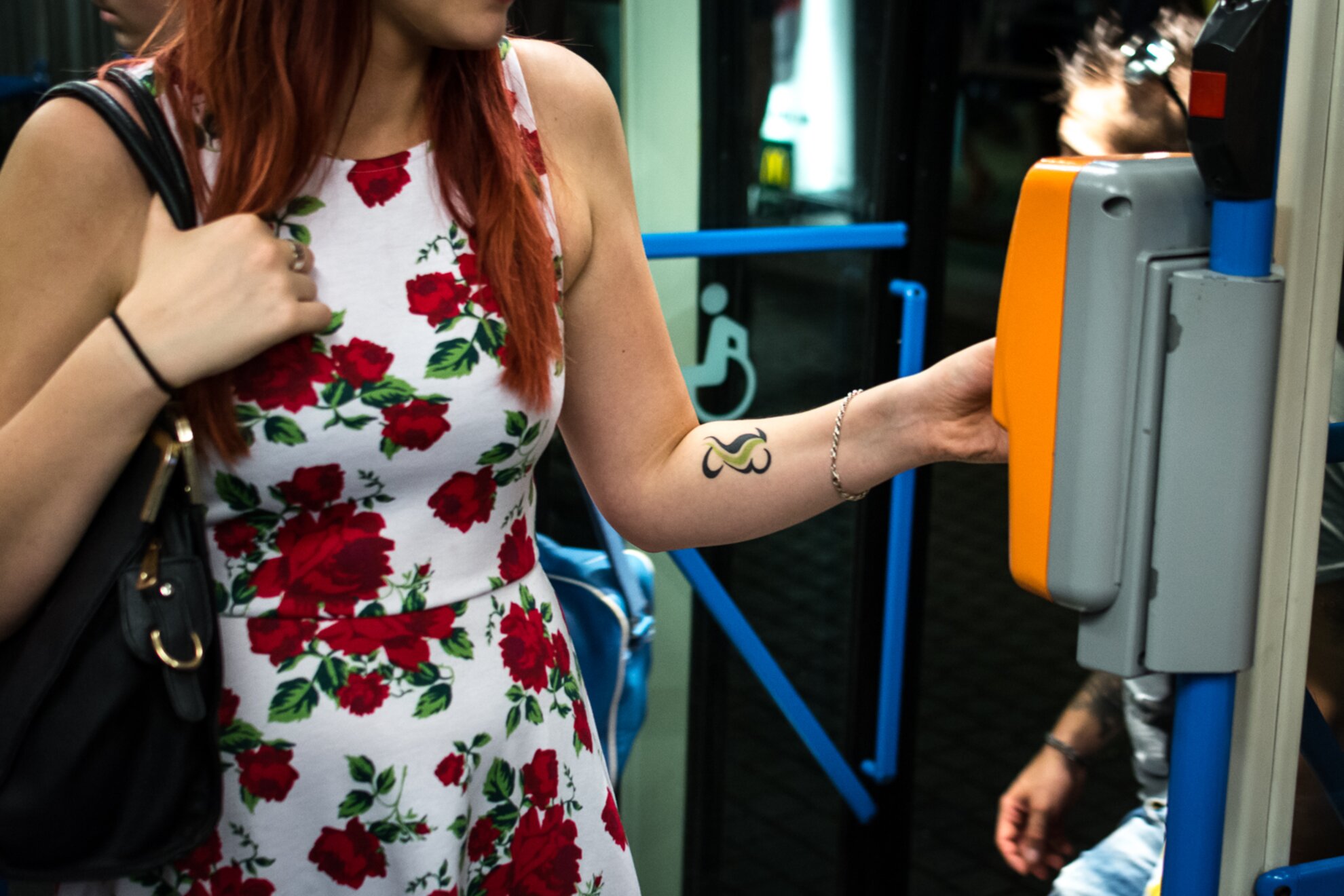
Vigilant transport thieves usually sit (or preferably stand) as close to one of the ticket-validation machines as they possibly can, always carrying a fresh ticket ready to be punched as soon as they spot an undercover officer putting on their armband and heading their way, but since there are usually several other passengers with the same plan standing nearby, there can sometimes be a frantic rush to reach one ticket-punching machine, meaning that only the quick and the pushy will avoid being busted. Because of this, especially skilled BKK criminals use advanced scanning techniques to assess groups of people who are boarding the bus to determine if they’re covert inspectors as early as possible, such as checking to see if several grumpy-looking people are talking together at a stop but then split up to climb aboard through different bus doors, or if they are wearing telltale accessories such as small satchels over their shoulders to hold citation paperwork, or a neck strap tucked into their shirt or under their jacket that could hold the official BKK “kontroll” badge.
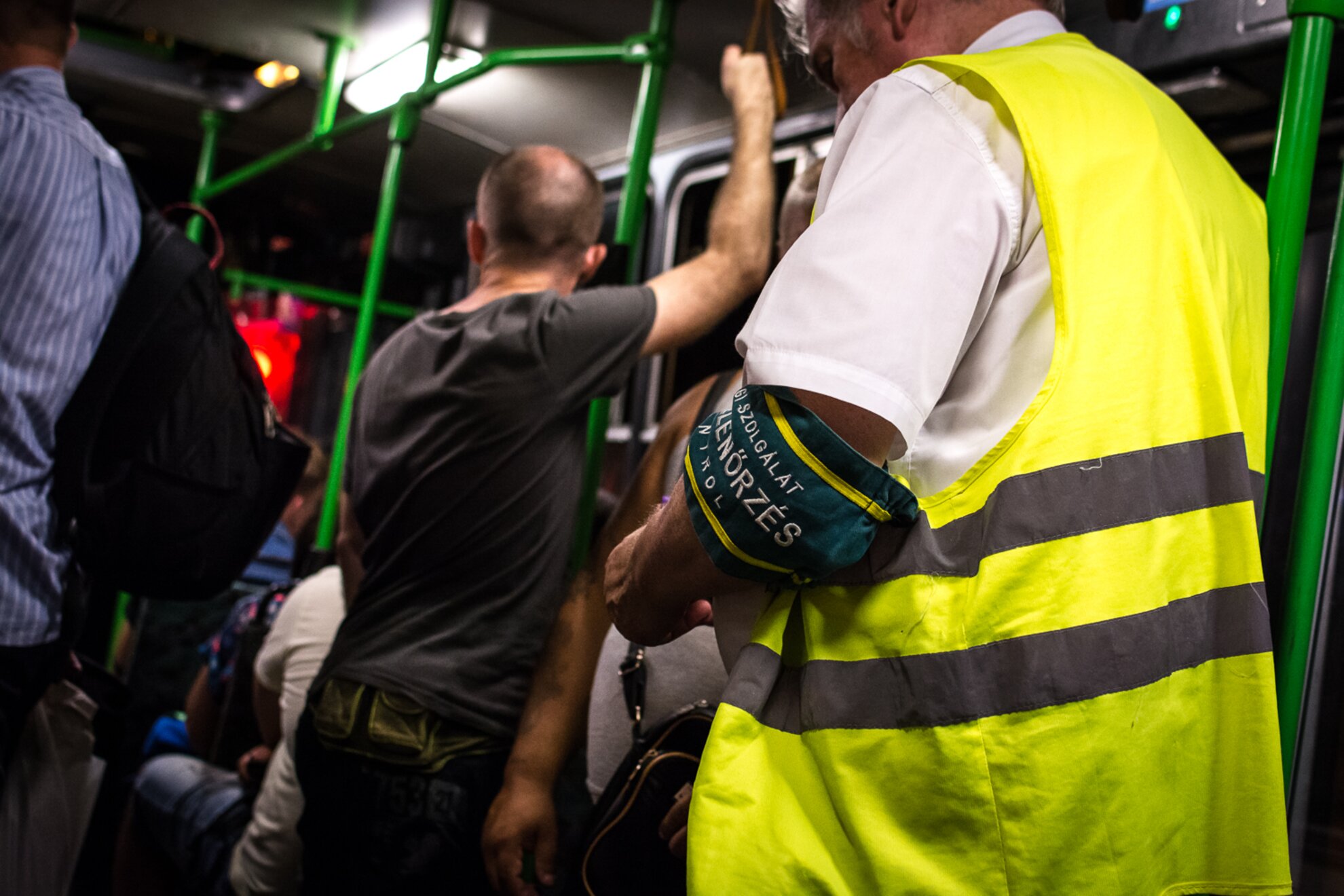
Speaking of Budapest bus travel, ticket enforcement aboard the city’s widespread night-busnetwork is handled quite differently – there are no undercover inspectors operating during the wee hours, but instead entire teams of ticket-checkers will ride a single bus while wearing reflective-yellow vests, and they patrol (almost) everyone who climbs aboard their bus, so it’s difficult to take a night bus without paying… and while some night buses are devoid of “kontroll” teams, a roving patrol crew might climb aboard at any stop – and since they’re frequently dealing with drunks, the inspectors who work the night shift are generally more harsh in their enforcement techniques than their daytime colleagues.
Trams
The ticket-punching procedures and undercover-enforcement protocols aboard Budapest’s many trams are similar to those aboard the city’s buses and trolleybuses, but since it is impossible for drivers to fill the ticket-inspector role aboard a streetcar, “kontroll” teams generally patrol trams more frequently than buses. Thus, seats and standing spaces nearby the ticket-punching machines aboard trams are usually more crowded with crooks than on the buses – especially the ticket-punching machines that are located a little distance away from the doors.
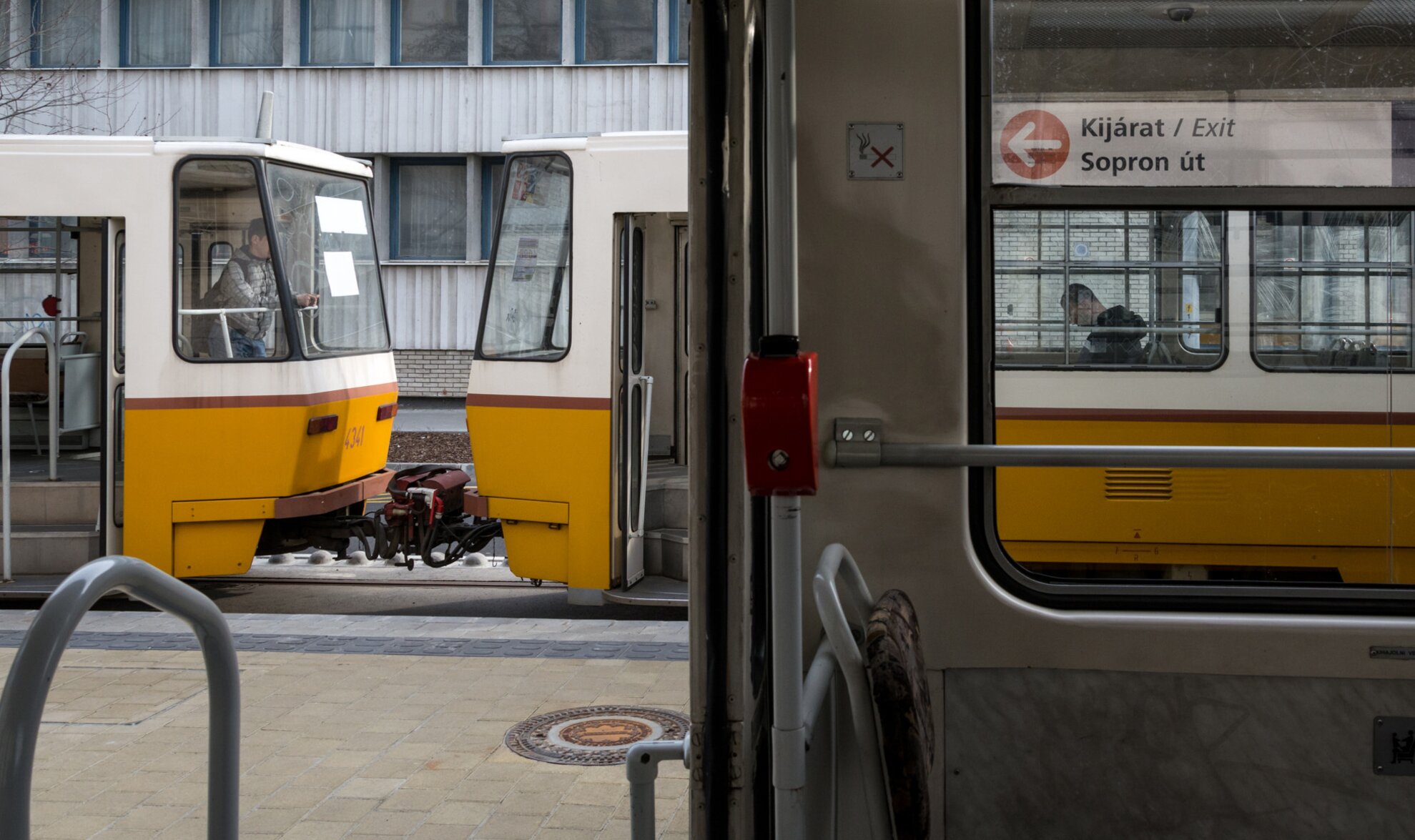
Unprincipled passengers that refuse to punch a ticket but who don’t mind getting a little exercise as they travel will stand directly next to tram doors and get off at every stop, only to immediately get back inside through the next door; this way, if an undercover ticket inspector has climbed aboard, technically the reprobate rider is a new passenger, and can punch a ticket as they are normally supposed to. Otherwise, some riders make a point of traveling on trams only when it’s rush hour and these urban railways are as crowded as possible – if a rider cannot even reach a validating machine, there’s no way for them to punch their ticket anyway, so inspectors generally don’t even bother checking jam-packed trams.
Metros
Even Budapest’s most seasoned ride filchers generally don’t mess with the metro, because normally the subway stops are guarded by ticket inspectors flanking the entrances or escalators, usually engaged in conversations that must span hours while addressing myriad topics ranging from current politics to the derrière of a young lady who just walked past.
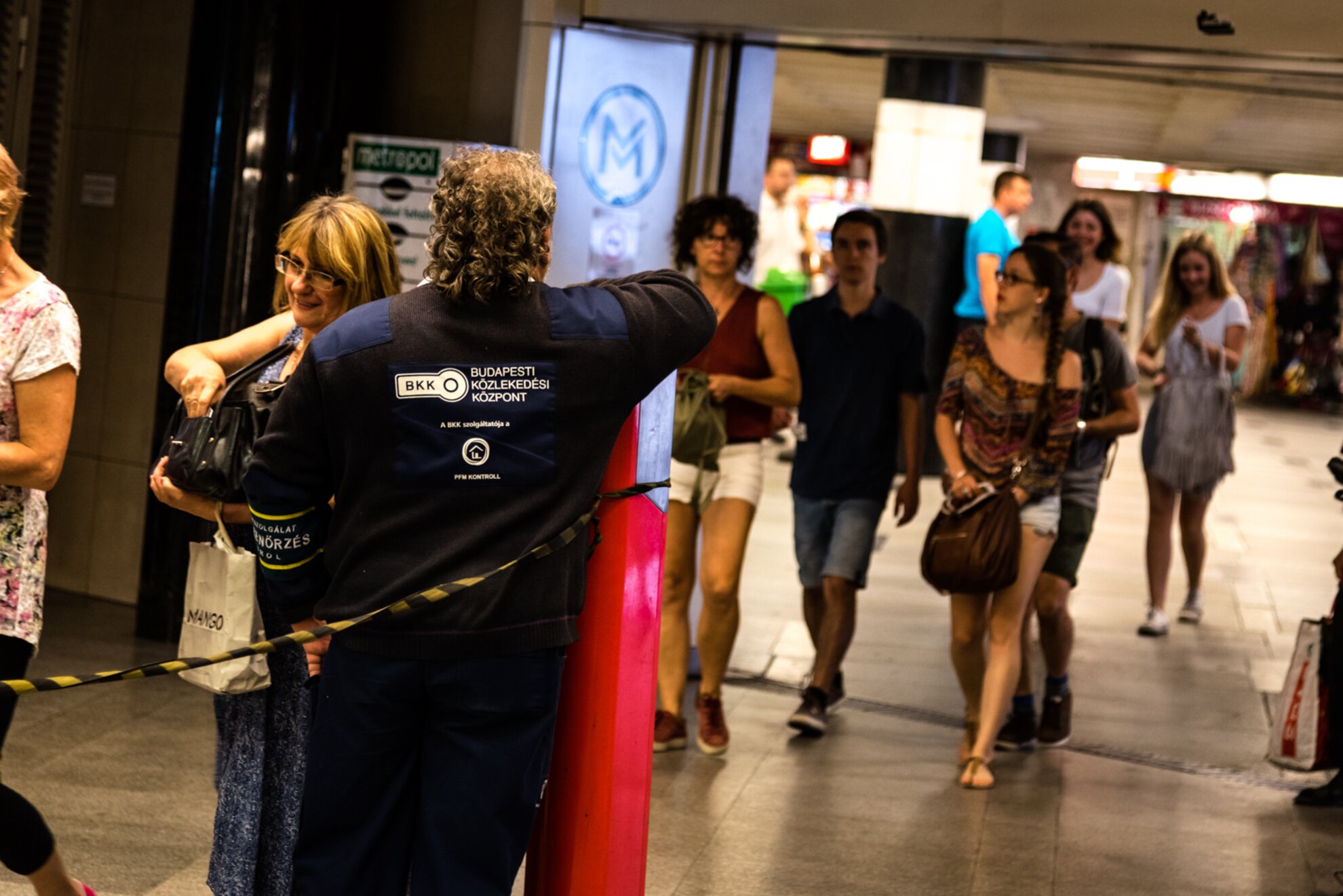
Thus, while these sentinels are not the world’s most attentive watchmen, it takes subterfuge on the level of Jedi mind tricks to pass by them without presenting a valid pass or properly punched ticket – and even if a metro entrance is unguarded, there’s a very good chance that inspectors may be patrolling the exiting escalator at the subway station of your destination, so they can catch rascally riders on the way out, too. What’s more, every now and then small “kontroll” teams lurk around next to the subterranean metro platforms, so this form of public transportation is usually considered off-limits to crooked commuters.
ConsequencesWhen justice prevails and public-transport transgressors are caught when riding without paying their fare, they are subjected to a 16,000-forint fine, or they can conclude this embarrassing episode by paying 8,000 forints on the spot – but anyone who finds themselves in that situation should make sure that they receive a receipt for the payment, as it is far from unheard of for ticket inspectors to pocket fine payments (or even accept bribes for amounts smaller than the official penalty). Otherwise, “kontroll” agents ask for ID and fill out a citation for the detained deviant – but technically, they cannot legally force anyone to produce identification or lay a hand on passengers, so some athletic ride rustlers have been known to flee the scene rather than pay the fare… but ticket inspectors can certainly call the police in this case, and sometimes they even travel along with law-enforcement officials who are absolutely authorized to demand ID or even tackle skedaddling escapees, which will result in much worse punishment than a 16,000-forint fine.
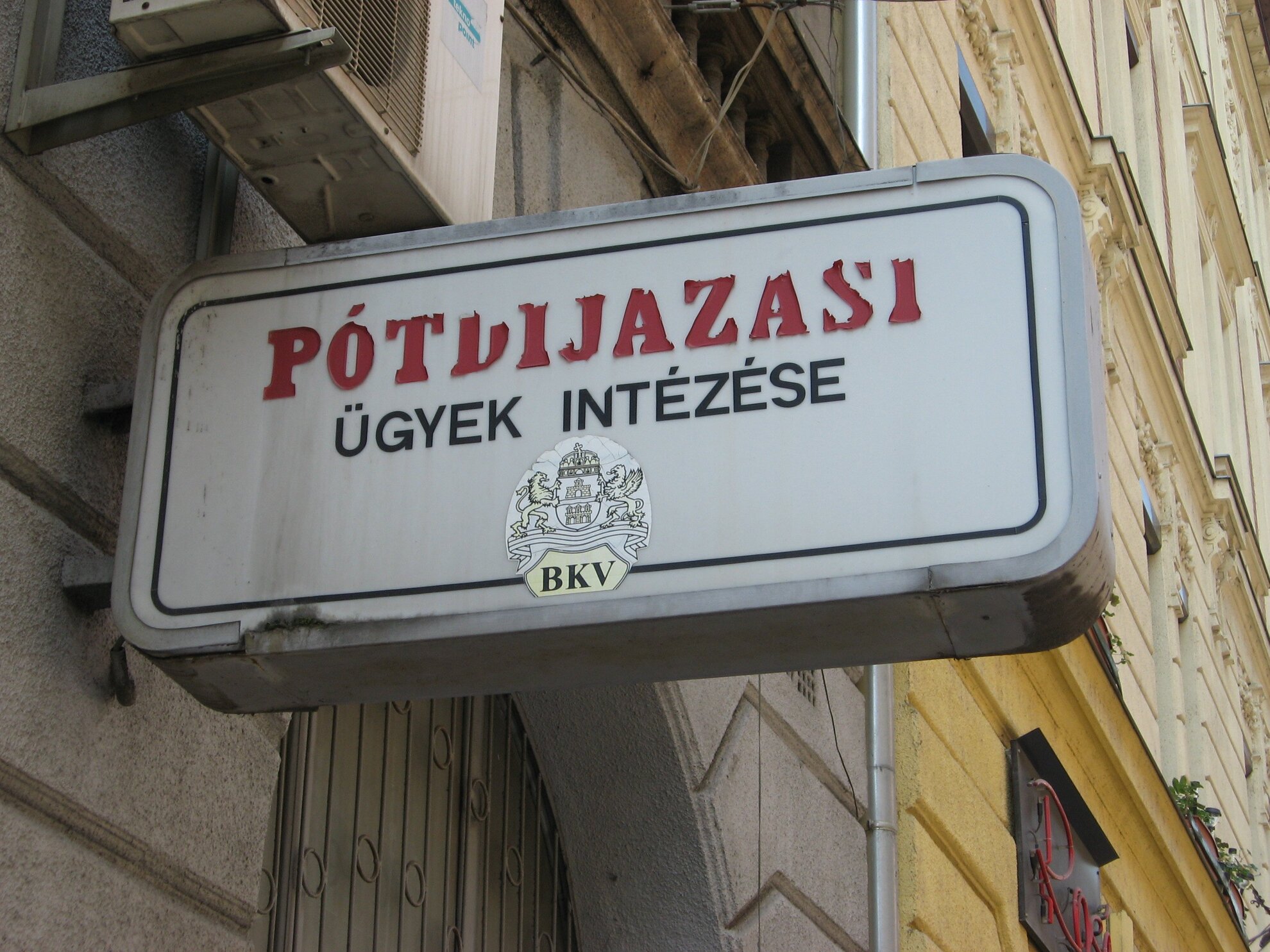
Fines can be paid at the BKK office in District VII at Akáfca Street 22, in the facility marked by the battered sign reading “Pótdíjazási ügyek intézése”, seen above. Here offenders can plead their case in hopes of leniency, but be warned – the fine-collecting arbiters behind the counter have heard it all before, and most likely aren’t too patient with English-speaking culprits. Check out the official BKK website for complete English-language details on tickets, passes, and enforcement – and always try to stay out of “kontroll”!
